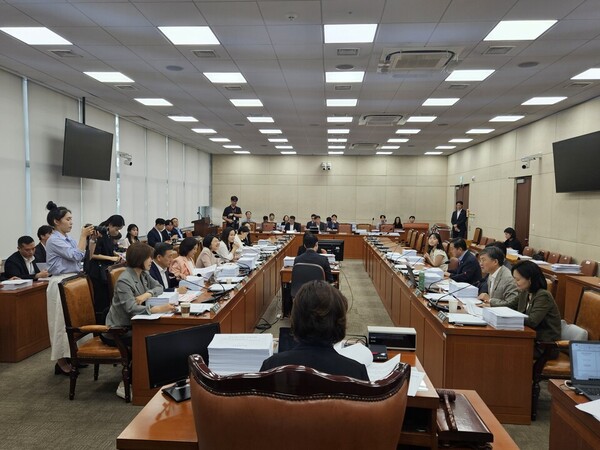The “Tattoo Artist Act,” which allows non-medical professionals to perform tattooing, has cleared the first hurdle by passing the National Assembly Health and Welfare Committee's legislative review subcommittee.
The Health and Welfare Committee held its second legislative review subcommittee meeting at the National Assembly’s plenary hall on Wednesday and approved the Tattoo Artist Act, which includes the aforementioned provisions.

The bill that passed the subcommittee was a compromise proposal that combines the “Tattoo Artist Act” proposed by Rep. Park Ju-min of the Democratic Party of Korea (DPK), the “Act on Tattoo Artists” proposed by Rep. Kang Seon-woo of DPK, and the “Tattoo Artist and Permanent Makeup Artist Act” proposed by Rep. Yoon Sang-hyun of the People Power Party (PPP).
At the subcommittee meeting, discussions focused on allowing non-medical professionals to perform tattooing while prioritizing the safety of users. The bill also includes provisions requiring users to record the details of the tattoos they receive.
The medical community, including the Korean Medical Association and the Association of Korean Dermatologists, opposes the bill, citing concerns, such as adverse effects, infection risks, and irreversibility associated with tattooing performed by non-medical professionals. However, with the growing social acceptance of tattoos, the need for an independent management system to ensure the health of users and the job security of practitioners has gained momentum, leading to the passage of the bill.
Prior to the subcommittee meeting, Rep. Park held a press conference at the National Assembly Communication Center, reiterating his call for the passage of the tattoo law. The Korea Tattoo Federation also called for the legalization of the tattoo industry.
The Ministry of Health and Welfare also said, “We agree with the necessity of establishing a system to ensure the health and hygiene safety of users and practitioners in response to the increasing demand for tattoos as a form of beauty and self-expression, as well as the intent of the draft legislation.”
However, considering the concerns of some groups opposing the establishment of the Tattoo Artist Act due to potential side effects, the ministry emphasized the need to establish a strict national management system, including the qualifications for tattoo artists and hygiene management standards, before proceeding with the legislation.
The Ministry of Environment stated that waste generated at tattoo establishments, including that related to hygiene management obligations, poses infection risks and should be handled similarly to medical waste. It also noted the need to review factors, including the nationwide distribution of tattoo establishments, the volume of waste generated, the current medical waste disposal system, and the feasibility of disposing of tattoo waste.
Related articles
- DPK lawmaker pushes to pass Tatto Artist Act in current assembly
- Korea's tattoo debate: health panel delays decision amid bipartisan push for legalization
- Tattooist Act proposed to allow non-medical practitioners to perform tattoo procedures
- Non-medical practitioner found guilty of eye-brow tattooing at jury trial
- [Contribution] Is tattooing a medical practice or an artistic act?
- Dermatologists oppose bill allowing non-medical professionals to tattoo
- Defying doctors’ opposition, parliamentary panel passes the Tattoo Artist Act
- Oriental medicine practitioners demand right to perform tattoos
- Tattoo law overhaul ends 33-year ban, includes oriental medicine doctors and dentists

